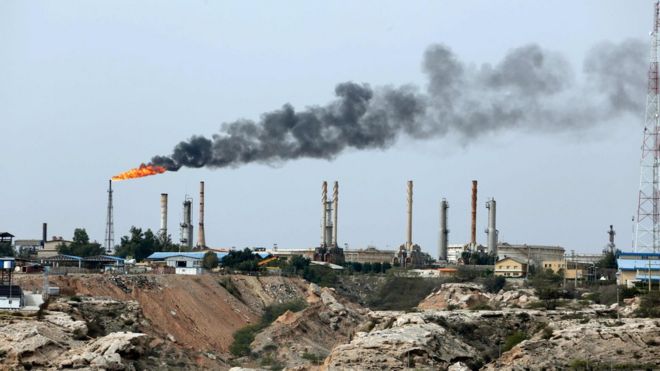 Iran nuclear deal: US rejects EU plea for sanctions exemption
Iran nuclear deal: US rejects EU plea for sanctions exemption
In a letter to European nations, Secretary of State Mike Pompeo said the US rejected the appeal because it wants to exert maximum pressure on Iran.It said exemptions would only be made if they benefited US national security.
The EU fears that billions of dollars' worth of trade could be jeopardised as a result of Washington's new sanctions.
- The impact of Iran sanctions
- Winners and losers as Trump quits Iran deal
- The EU's billion-dollar deals at risk
It added that the US is "not in a position to make exceptions to this policy except in very specific circumstances".
The strict sanctions were imposed in May after President Donald Trump withdrew from the 2015 international agreement on Iran's nuclear programme.
The US withdrawal meant sanctions that were in place prior to the agreement were re-imposed.
Its opposition to the deal is at odds with that of France, Germany and the UK, which have pledged their commitment to it.
In 2017, EU exports to Iran (goods and services) totalled €10.8bn (£9.5bn; $12.9bn), and imports from Iran to the bloc were worth €10.1bn. The value of imports was nearly double the 2016 figure.
Now, European businesses are worried that their ties with the US could be damaged if they continue doing Iranian deals.
But earlier this year, the EU began reviving legislation that it said would allow its companies to continue doing business with Iran.
The so-called "blocking statute" was introduced in 1996 to circumvent US sanctions on Cuba but was never used.
An updated version of the measure should be in force before 6 August, when the first sanctions take effect.
No comments:
Post a Comment